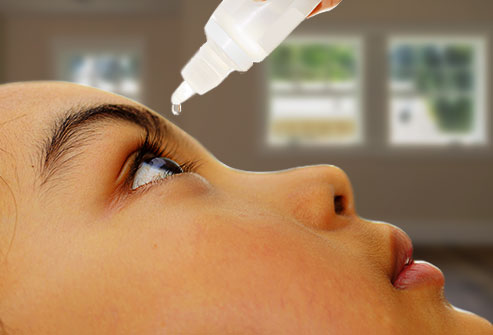Clear Eyes, Bright Futures: The Importance of Atropine Treatment for Kids

As parents, we want nothing but the best for our children, especially when it comes to their health and well-being. When faced with the diagnosis of myopia (nearsightedness) in our kids, it's natural to seek out the most effective treatments to preserve their vision and ensure a bright future. One such treatment that has gained attention in recent years is atropine therapy. In this blog, we'll delve into the importance of atropine treatment for kids with myopia, exploring how it works, its potential benefits, and what parents need to know before considering this option. Let's embark on this journey together to uncover the power of atropine in shaping clear eyes and bright futures for our children.
Understanding Atropine Treatment:
Atropine is a medication commonly used in ophthalmology to dilate the pupil and temporarily paralyze the focusing muscles of the eye. In the context of myopia management, low-dose atropine eye drops are applied to the eyes to slow down the progression of myopia in children. Unlike traditional treatments such as eyeglasses or contact lenses, which correct refractive errors but do not address the underlying cause, atropine therapy targets the structural changes in the eye associated with myopia progression.
The Importance of Myopia Control:
Myopia has emerged as a global epidemic in recent decades, particularly in urbanized regions with high levels of near work and limited outdoor activities. Left unchecked, myopia can lead to increasingly severe levels of nearsightedness, heightening the risk of vision-threatening complications such as retinal detachment, glaucoma, and myopic maculopathy. Moreover, high myopia is associated with a greater likelihood of developing vision loss and blindness later in life. As such, myopia control strategies, including atropine treatment, have become a focal point in pediatric eye care.
Benefits of Atropine Treatment:
Slowing Myopia Progression: The primary goal of atropine treatment is to slow down the progression of myopia in children, thereby reducing the risk of developing high myopia and associated complications. Studies have shown that low-dose atropine eye drops can effectively inhibit axial elongation of the eyeball, which is the underlying mechanism driving myopia progression.
Improved Visual Outcomes: By slowing the progression of myopia, atropine treatment may lead to better visual outcomes for children in the long term. By preserving their distance vision, children are better equipped to excel in academic pursuits, sports, and other activities that rely on clear eyesight.
Reduced Dependence on Corrective Lenses: While atropine therapy does not eliminate the need for corrective lenses altogether, it may reduce the rate at which a child's prescription increases over time. This can result in fewer prescription changes and less reliance on glasses or contact lenses for optimal vision correction.
Early Intervention: Atropine treatment is most effective when initiated early, ideally during the early stages of myopia development. By intervening before myopia progresses to more severe levels, parents can help mitigate the long-term consequences of high myopia and promote healthier visual outcomes for their children.
Considerations for Parents:
Before considering atropine treatment for their children, parents should be aware of the following considerations:
Potential Side Effects: While low-dose atropine therapy is generally well-tolerated, some children may experience temporary side effects such as light sensitivity, blurred vision, or near vision disturbances. These side effects typically diminish over time as the child's eyes adjust to the medication.
Long-Term Commitment: Atropine treatment is not a one-time solution but rather a long-term management strategy for myopia. Parents should be prepared to administer the eye drops regularly as prescribed by their eye care provider and monitor their child's progress over time.
Individual Response: Every child responds differently to atropine treatment, and the effectiveness of the therapy may vary from one individual to another. Factors such as age, degree of myopia, and genetic predisposition may influence the treatment outcome.
Comprehensive Eye Care: Atropine treatment should be part of a comprehensive eye care plan that includes regular eye examinations, monitoring of myopia progression, and adjustments to the treatment regimen as needed. Parents should work closely with their child's eye care provider to ensure optimal management of their myopia.
In the quest to safeguard our children's vision and ensure a bright future, atropine treatment has emerged as a promising strategy for slowing the progression of myopia. By understanding the importance of myopia control and the potential benefits of atropine therapy, parents can make informed decisions about their child's eye care and take proactive steps to promote healthy visual development. With clear eyes and bright futures on the horizon, atropine treatment offers new hope for children affected by myopia, paving the way for a lifetime of clear vision and limitless possibilities.
Schedule your myopia consultation today:
https://scheduleyourexam.com/v3/index.php/8667/










